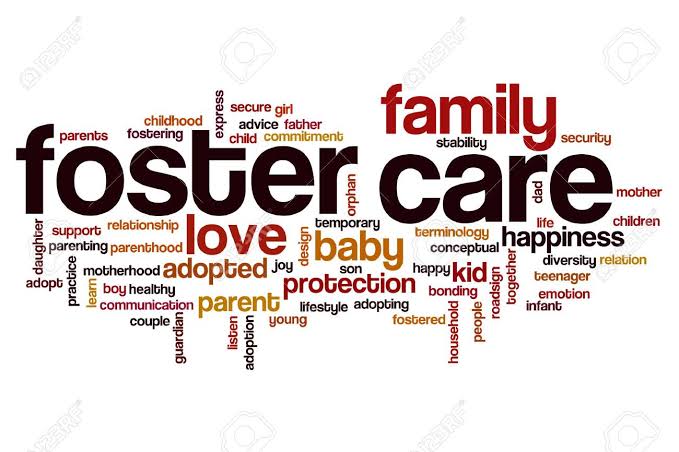Foster Care under the New MoWSA’s Directive Number 976/2023
By Mahlet Mesganaw, Partner at DMLF

The Ministry of Women and Social Affairs Directive on Alternative Child Care and Support, Directive No 976/2023 was issued in October 2023. The Directive shall enter into force as of the date the Directive has been registered by the Ministry of Justice and posted on the website of the Ministry of Justice and the Ministry of Women and Social Affairs.
As part of family based care systems, foster care is a temporary form of care where a child is placed by foster care provider to foster carer. The latter shall make an application to be registered as a foster carer by submitting an application to the relevant bureau. The foster care provider shall select, train and approve the foster carer. The foster carer cannot be the child’s parent(s), relative or guardian. Rather the foster carer is an outsider who is interested in undertaking care and maintenance of a child.
Foster care bases itself on a contract agreement. The foster care contract has to specify the rights and obligations of the child, the foster family, the biological parents(if alive) and of the foster family care service provider organization.
The foster care grants the foster parent the parental responsibilities of maintaining and caring for the child. However, a foster carer cannot take the foster child outside of the jurisdiction of Ethiopia without the approval of leave from a court of law. Such leave shall only be granted upon exceptional circumstances being shown. Which court has jurisdiction to hear such cases i.e. the regional court or federal court is not mentioned. Principles and details of what constitutes an ‘exceptional circumstances’ to grant or disregard leave to travel outside of the jurisdiction of Ethiopia have not been provided by the Directive.
The foster care applicants have to fulfill the following conditions: they should be Ethiopian nationals and solely resident in Ethiopia permanently. If they are foreign nationals of Ethiopian origin, they have lived in Ethiopia for at least two years preceding the foster care placement. The minimum age for a foster carer is 25 and above. If married, the spouse has to give full consent.The consent of any other member of the household may also be necessary, including that of the prospective foster parent’s children. In addition to these, documents such as Identification card or passport, marriage certificate, proof of income, police clearance certificate, medical certificate, two references of good character, photograph are required to be attached.
Long-term foster care is the placement of a child in foster care, potentially until the foster child reaches the age of 18 years.A short-term foster care, on the other hand, is a placement of a child in foster care for up to twelve months, upon which the placement can be renewed on an annual basis by relevant bureau or Child Protection Expert for up to three (3) years. Another form of foster care is emergency foster care. In emergency foster care, the emergency foster carers are willing to provide care and protection for the child with short advance notice or on the same day or less than 24 hours. Emergency placement is established for up to ten (10) to fifteen (15) days prior to review by a Child Protection Expert, after which the placement may be converted into short-term foster care as suitable and necessary.
Hence, foster care has been recognized as one form of family based care services. However due to foster care’s temporary nature, at least long term foster care is a recommended form of family care after reunification with birth parents, or placement in extended family or adoption. Community based care or residential care is treated as a last resort.
For any foster care related inquiries you may contact us at info@dmethiolawyers.com
-
Foreign Experts and Consulting Firms:Certificate of Competency
By Mahlet Mesganaw, Partner at DMLF The Ethiopian Environmental Protection Authority, with its power generated from Article 20 of the Environmental Impact Assessment Proclamation No 299/2002, issued a Directive on Issuance of Competency for Consulting Services in Environmental and Social Impact Assessment Number 1005/2024 (hereafter the Directive). The Directive is done in June 2024 and…
-
Certificate on Mediation
Congratulations for Mahlet Mesganaw, Partner at DMLF, for her achievement of Certificate on Mediation for Trainers from VU Amsterdam.
-
Few Points on Ethiopian National ID
By Dagnachew Tesfaye, Managing Partner at DMLF The Ethiopian Digital Identification Proclamation No.1284/2023 done on 18th day of April 2023, governs the national id issuance and regulation. This brief article will cover a few points on the purpose of the Proclamation, eligible parties, what information is collected, unique number and digital identification credential, authentication and…
-
Business Visa Application
By DMLF Immigration and Citizenship Services (ICS) requires the following documents when applying for a Business Visa: For any related inquiries, you may contact us at info@dmethiolawyers.com
-
RESPONDING TO CHILD ABUSE AND NEGLECT
By Dagnachew Tesfaye, Partner at DMLF The Alternative Child Care and Support Directive Number 976/2023 by Ministry of Women and Social Affairs, October 2023, incorporates a section namely Responding to Child Abuse and Neglect. The State is given the responsibility to respond to child abuse and neglect. The procedure of reporting, assessment, court approval, emergency…
-
Gold Purchase Price Adjustment
By DMLF The National Bank of Ethiopia has introduced an amendment Directive namely NBE Amendment Procedure on Price of Gold Purchase No 1/2024, effective as of June 17/2024. This Directive is an amendment to a similar Directive number 3/2023. The amendment Directive encompasses price adjustment for provision of gold in terms of its weight and…


